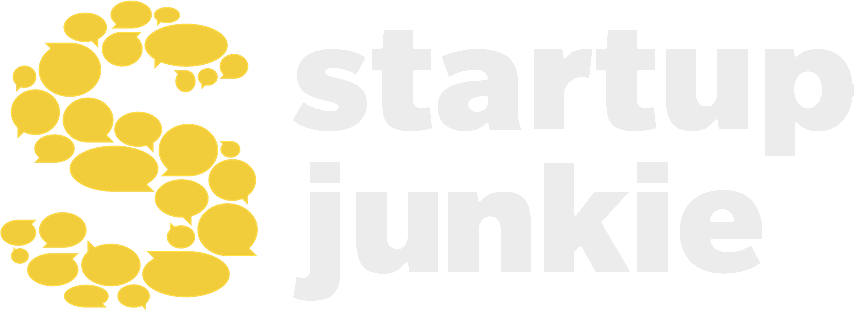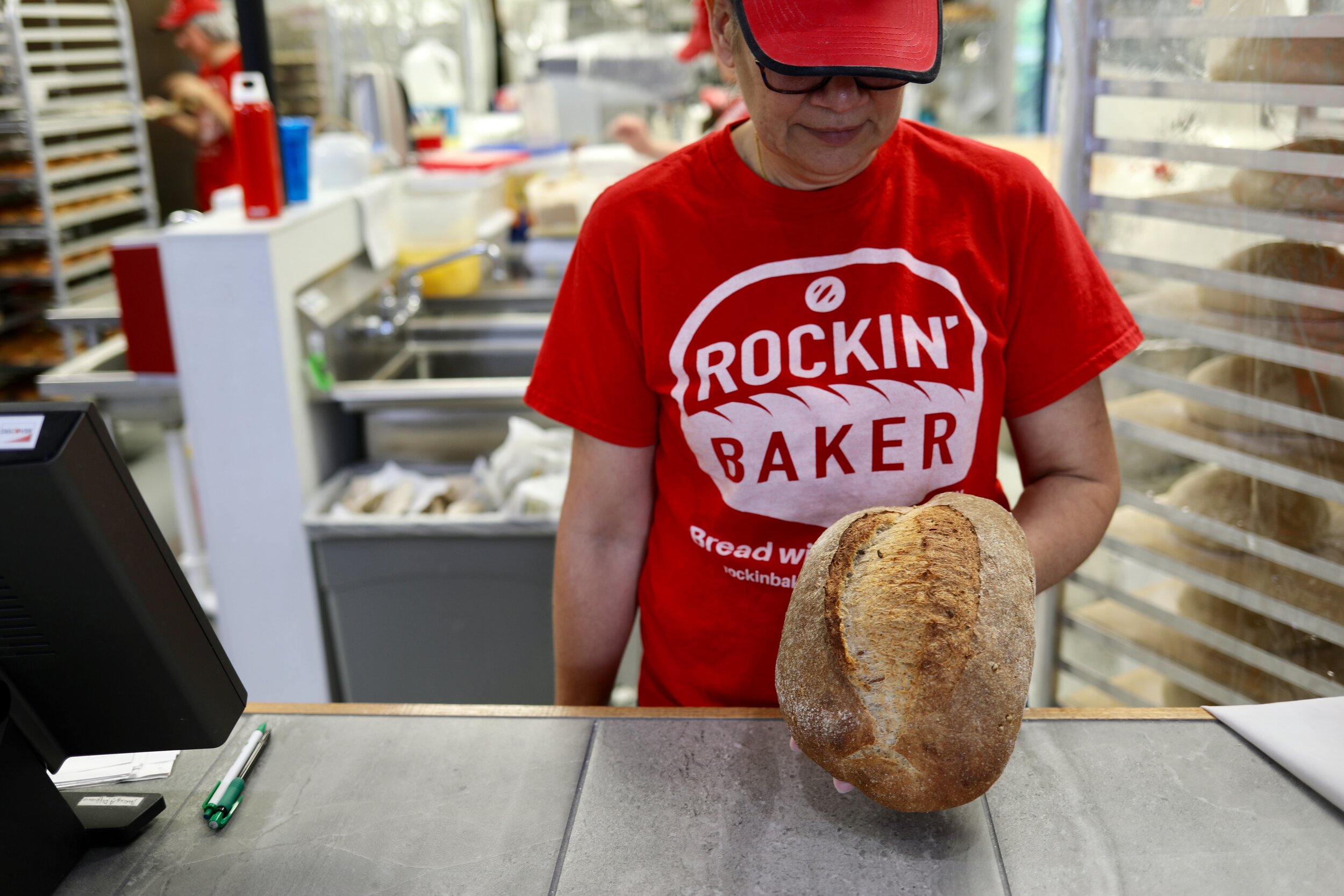Daymara Baker is transforming lives, one loaf at a time.
The Venezuelan native-turned-Fayetteville business woman is cooking up something special in her small, European-style bakery. And it’s not just the sourdough and brioche. For the last three years, she’s been helping change the lives of dozens of intellectually disabled individuals in the region. With a little help from her community, she hopes to expand that impact.
The labor of her loaf is the Rockin’ Baker Academy. The shop on Mall Avenue in Fayetteville turns out naturally leavened breads made by some of the region’s most underserved yet deserving individuals. Rockin’ Baker Academy not only sells incredible bread, but also serves as a workforce training place for intellectually disabled individuals interested in jobs in commercial baking.
But it didn’t start out that way.
Baker knew she wanted to give back to her community, and she knew she wanted to do it through workforce education.
“I had always wanted to create a nonprofit with a business model,” Baker says. “The traditional nonprofit model is too dependent on grants and donations to stay afloat. I wanted to have a business model that was more sustainable. I wanted to have a concept where I could sell a good to sustain the nonprofit rather than having to depend on donations.
“I’ve also always been interested in education. I’m a strong believer in giving people the tools to succeed in life versus just giving them money,” she adds. “So, the concept I wanted to do was to create a place where someone could get on-the-job training to transition them into permanent employment.”
She had never worked in hospitality. She had never working in a kitchen. She had never even bussed a table.
But she had an idea, and she chose to run with it.
“Here I am considering this concept that was totally new to me,” said Baker. “But it was one of those, ‘wait – if I don’t do it, what if?’ I never want to have one of those moments where I wonder, ‘what if?’ If I’m going to do it, great. If it doesn’t work out, I can say that I tried and move on.
“I decided to open Rockin’ Baker Academy. I had a mind for when I wanted to open – 11/11/16. I opened that day. I’m a project manager, so that’s what I did. I counted on people to help provided me with advice and guidelines. I opened, and of course, I had my failures.”
The Rockin’ Baker Academy did open on November 11, 2016. But the initial opening, Baker said, was one of those mistakes she would have to learn from.
“I didn’t really understand a lot of the dynamics behind the hospitality business,” Baker said. “In this case, it’s important to make a lot of noise when you open. I went the opposite direction because I didn’t want to go too big. I was worried about making mistakes. I went on the slow side, and I didn’t get the awareness because I didn’t have that punch at the beginning.”
“I believe you learn more from your failures than anything else. That’s not something to be ashamed of. I embrace my failures as a way to learn and grow and even help others move forward. There’s been a lot of learning.”
Under estimating the market for European-style bread was also a mistake Baker said she made out of the gate.
“I really thought the concept of European baked goods would be more appealing to this market,” she said. “I think I overestimated that. I realize now that the market might not be totally there for the things that I sell. That was a learning experience, and I had to adapt. That meant I had to learn to depend less on retail and more on wholesale. Of course, that brought challenges because my location is for retail. Because of that, I have a much higher lease than if I were in wholesale. But when you’re stuck in a lease like that, you have to figure out how to make it work.
“I have adapted the bakery in a way to position it to be more wholesale. Because I do have some loyal customers, I keep a little retail available to buy the bread. This was part of my vision.”
When Rockin’ Baker Academy opened, Baker’s goal was to help reintroduce former female inmates into the workforce.
“Females tend to be the runner of the house,” she said. “The chances are, if she is able to sustain herself, her family has a better chance of coming out of poverty. That was my original focus. One lady brought her daughter with her one day, and her daughter has autism. She asked if she could be here and learn to bake.
“I had never worked with someone with autism before,” she added. “That opened my eyes and made me see how huge of a void we have in this community. The population here is large, and it is growing. But nobody is giving these people a chance. If they don’t get trained in a commercial operation, they won’t get the opportunity for employment. I thought I could provide that training.”
Her first “cadet” quickly became her first success story. The young woman did not talk and had trouble socializing with others. The more she worked in Baker’s shop, the more she opened up.
“Now, she runs my cash register and can explain our products better than anyone else. When I saw just how well the program worked, I knew this is what I needed to do,” she said “She helps me run the bakery and ran my farmers market table. She began trading with the farmers, trading bread for other things we needed for the bakery. And she began doing that all on her own, without even being asked. This became her favorite thing. You had someone who was so shy she wouldn’t talk who is now going out and talking and engaging with people regularly.”
According to Baker, 83% of those with intellectual disabilities are unemployed or under employed. In Arkansas, there are approximately 23,000 unemployed or under employed with intellectual disabilities. But her biggest task isn’t preparing those individuals for the workforce, but rather, equipping employers with the knowledge necessary to give them a chance.
“There are a lot of stereotypes about someone on the spectrum,” said Baker. “I’ve spoken to people who think all people on the spectrum are like Rain Man, and that’s just not true. If you open your eyes and stop trying to check these boxes as a hiring manager, you can recognize the talents that these individuals have.”
For example, Baker explained, someone of the spectrum may not want to make eye contact with an interviewer, which could eliminate them as a candidate for a job. “If you can understand that trait, and you’re willing to look past that and focus on more important skills, you may find a great employee,” she said.
One young woman who came to Baker for training had just been let go from a job after two days because, according to Baker, the employer didn’t understand the woman’s disability. She found her to be incredibly capable and hired her to work in the bakery.
“They didn’t understand her disability,” she says of the woman’s previous employer. “She came here, and now she’s thriving as a team member. She has an excellent memory and she’s incredible with data analysis. She’s so precise, and that’s what you need when you’re hiring for a commercial bakery. Her previous employer didn’t know her great skills. I had to hire her myself.”
Baker is working hard to get her cadets ready for the workplace. But she’s also trying to get them ready for the world around them, too. She takes pride in having sent home caregiver who have come to accompany her cadets. When they’re with her, cadets get a lesson in being independent, too.
“I want my cadets to become as independent as they can,” Baker says. “I understand that some individuals will need someone with them. But I’ve found that in other instances, it can limit them. I feel that, in some instances, that caregiver may be just a little over protective.
“I want my cadets to learn that there are things they can do on their own,” she adds. “I want them to tap into their hidden strengths, hidden potential. These individuals are gems. They just need to be polished, and they can’t do that when someone is doing everything for them.”
As the approached the three-year anniversary of opening the Rockin’ Baker Academy, Baker reflected on the work she has done and the work that is left to do. On any given day, six to 10 cadets come in for training in a commercial kitchen. Baker, herself, has hired upwards of six of her cadets to work for her. Others are placed in jobs with other commercial bakeries.
“I want to expand,” she says. “I want to make this available to more people. I want to replicate my vision with other industries. I want to find more open-minded hiring managers that will help me give these great people a chance.”
During that time, she’s also learned three major lessons as an entrepreneur.
“When you come up with a business model, and you want to become an entrepreneur, make sure you understand what it takes to get it done,” she said. “I underestimated, not only my forecasts, but what it would take to keep this going if it didn’t go the way I’d planned. That also mean depending less on friends and family. Most of the time, that’s at the beginning and that fades out. You have to be able to make it on your own. It can be tough.
“Be adaptable. Not everything goes according to plan and you need to be able to be flexible and adapt to your circumstances. You may have to redirect your plans to make it successful. And lastly,” Baker added. “Don’t be afraid to go out and ask for help. Failing is good. When you’re failing, fail forward instead of backwards.”

